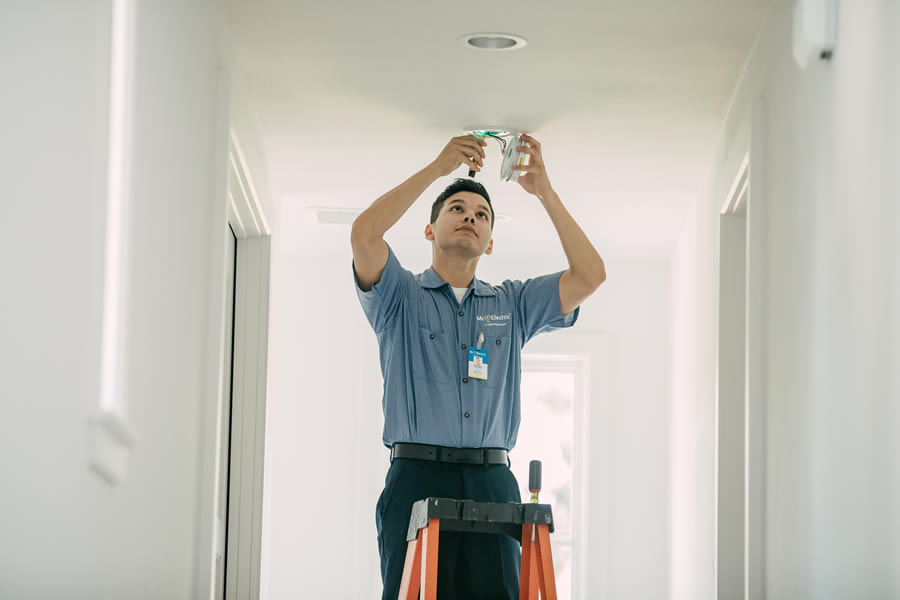Types of Electrical Wiring in Commercial Buildings
Believe it or not, there are many types of electrical systems and electrical wiring available for residential and commercial properties. Each is designed to meet specific needs and capacity, with varying voltages and other factors. Knowing the differences can help you make informed decisions about installation, upgrades, and maintenance. Let’s dive into five key variations in residential and commercial electrical systems.
In this brief article brought to you by Mr. Electric, we introduce you to the basics of the complexity of electrical systems. If you’d rather consult with a certified electrician, then call Mr. Electric to schedule a face-to-face meeting or on-site visit for as soon as possible.
Single-phase vs. three-phase power
Single-phase power is primarily used in residential homes and delivers electricity through two wires: one live wire and one neutral wire. It’s straightforward and sufficient for most household appliances and lighting. They are simple with a lower cost, but they are not suitable for heavy machinery or high-power demands found in some commercial settings.
Three-phase power uses three live wires and one neutral wire, providing a more constant and reliable power flow. It’s ideal for commercial and industrial settings where powering heavy-duty equipment and large HVAC systems are crucial. As you can imagine, they are more complex and costly to install and maintain compared to single-phase systems.
Low-voltage vs. high-voltage systems
A low-voltage system operates on voltage levels below 50 volts. Common low voltage systems include doorbells, thermostats, and landscape lighting. They are used in both residential and commercial settings and offer safe and reliable power with reduced risk of electrical shock. Naturally, they are limited to applications that do not require high power.
High-voltage systems operate on voltage levels above 1000 volts. This high-risk system is used to power large machinery, industrial equipment, and high-capacity HVAC systems. They are found in commercial and industrial environments, and they require strict safety measures and professional handling.
Overhead vs. underground electrical systems
Overhead electrical systems are typically used for distributing electricity to both residential and commercial areas. Electrical wires are strung between poles above ground. Though they are easier and less expensive to repair with quick access for maintenance, overhead electrical systems are vulnerable to adverse weather condition and physical damage. Plus, it can be an eyesore.
What’s an underground electrical system? You guessed it: the electrical wiring is buried underground. They are increasingly popular in new developments thanks to their aesthetic and safety benefits. In contrast to overhead wiring, these are more expensive to install and maintain but they are better protected against the elements and physical damage.
Alternative vs. direct current electrical systems
Almost universal in residential and commercial areas, alternative current (AC) systems deliver electricity in alternating directions. They are suitable for long-distance transmission and most household and commercial applications.
In a direct current (DC) electrical system, electricity flows in a single direction, providing a constant voltage. They are essential for applications like battery storage, solar power systems, and electronics. However, DC electrical systems are not suitable for long-distance transmission, and they require converters for compatibility with AC devices.
Consult with a certified electrician today
Whether you need a residential or commercial electrician, the certified and uniformed professionals at Mr. Electric are ready to help. Call Mr. Electric to schedule a convenient appointment today.
We are also happy to arrange emergency electrical repair service for as soon as possible. Our live representatives are on standby to take your call or message at any time of the day and any day of the week.







